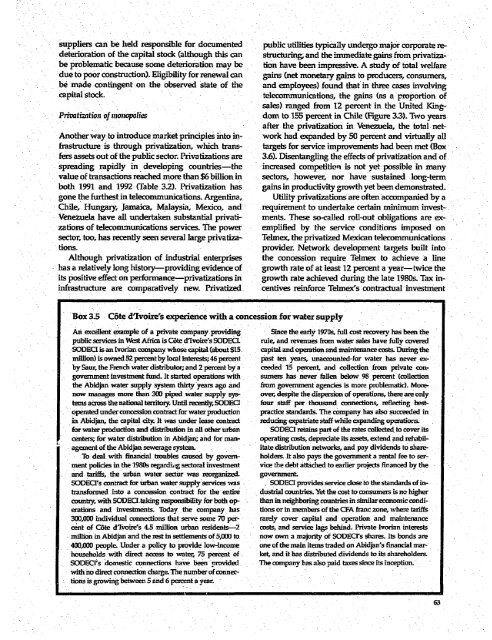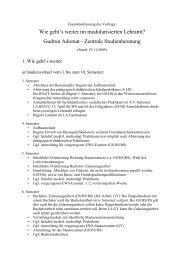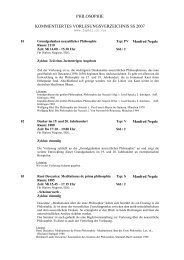ASi" kUCTURE FlOR DEVELOPMENT
ASi" kUCTURE FlOR DEVELOPMENT
ASi" kUCTURE FlOR DEVELOPMENT
You also want an ePaper? Increase the reach of your titles
YUMPU automatically turns print PDFs into web optimized ePapers that Google loves.
suppliers can be held responsible for documented public utilities typically undergo major corporate redeterioration<br />
of- the capital stock (alth-ough this can structuring,;and the immediate gains from privatizabe<br />
problematic because some deterioration may be tion have been impressive. A study of total welfare<br />
due to poor construction). Eligibility for renewal can gains (net monetary gains to producers, consumers,<br />
be made contingent.on the observed state of the and employees) found that in three cases involving<br />
capital stock.<br />
telecommunications, the gains (as a proportion of<br />
sales) ranged from 12 percent in the United King-<br />
Privatizantionl of monlopolies<br />
dom to 155 percent in Chile (Figure 3.3). Two years<br />
after the privatization in Venezuela, the total net-<br />
Another way to introduce market principles into in- work had expanded by 50 percent and virtually all<br />
frastructure is through privatization, which trans- targets for service improvements had been met (Box<br />
fers assets out of the public sector. Privatizations are 3.6). Disentangling the effects of prvatization and of<br />
spreading rapidly in developing countries-the increased competition is not yet possible in many<br />
value of transactions reached more than $6 bilion in sectors, however, nor have sustained long-term<br />
both 1991 and 1992 (Table 3.2). Privatization has gains in productivity growth yet been demonstrated.<br />
gone the furthest in telecommunications. Argentina, Utility privatizations are often accompanied by a<br />
Chile, Hungary, Jamaica, Malaysia, Mexico, and' requirement to undertake certain nminimum invest-<br />
Venezuela have all undertaken substantial privati- ments. These so-called roll-out obligations are exzations<br />
of teleconmunications services. The power emplified by the service conditions inposed on<br />
sector, too, has recently seen several large privatiza- Telmex, the privatized Mexican telecommunications<br />
tions.<br />
provider. Network development targets built into<br />
Although privatization of industrial enterprises the concession require Telmex to achieve a line<br />
has a relatively long history-providing evidence of growth rate of at least 12 percent a year-twice the<br />
its positive effect on performance-privatizations in growth rate achieved during the late 1980s. Tax ininfrastructure<br />
are comparatively new. Pxivatized centives reinforce Telmex's contractual investment<br />
Box 3.5 Cote d'Ivoire's experience with a concession for water supply<br />
Ant excellent example of a private company providing Since the early 1970s, full cost recoverv has been the<br />
public services in West Africa is Cote d'lvoire's SODECL rule, and revenues from water sales have fully covered<br />
SODECI is an Ivorian company whose capital (about 515 capital and operation and maintenance costs. During the<br />
million) is ouned 52 perent by local interests; 46 percent past ten years, unaccounted-for -water has never exby<br />
Saur, the French water distnbutor and 2 percent bv a ceeded 15 percent, and collection from private congovernment<br />
investment fund. It started operations with sumers has never fallen beWow 98 percent (collection<br />
the Abidjan water supply system thirty years ago and from goverment agencies is more problematic). Morenow<br />
manages more than 300 piped waler supplv sys- over, despite the dispersion of operations, theme are only<br />
tems across the national teritory. Until recently, SODEC four staff per thousand connectons, reRecting bestoperatedunderconcessioncontractforwaterpzoduction<br />
practice standards. The company. has also succeeded in<br />
in Abidjan, the capital city. It was under lease contract reducing expatriate staff while expanding operations.<br />
for water production and distribution in all other urban SODECI retains part of the rates colected to cover its<br />
centers; for water distribution in Abidjan; and for man- operating costs, depreciate its assets, extend and rehabilagement<br />
of the Abidjan sewerage system.<br />
itate distnbution networks, and pay dividends to share-<br />
To dml uwith financial troubles caused bv govern- holders. It also pays the government a rental fee to serment<br />
polcies in the 1980s regardi.g sectoral investment vice the debt attached to earlier projects financed by the<br />
and tariffs, the urban water sector was reorganized. governmenL<br />
SODECrs contract fur urban water supply services was SODECI provides service dose to thestandaids of intransformed<br />
into a concession contract for the entire dustrial countries. Yet the cost to consumers is no higher<br />
country. with SODECI taking responsibility for both op- than in neighboring cuntries in similar economic condierations<br />
and investments. Today the company has tions or in members of the CFA franc zone, where tariffs<br />
300,000 individual connections that serve some 70 per- rarely cover capital and operation and maintenfance<br />
cent of Cote d'lvoire's 4.5 million urban residents-2 costs, and service lags behind. Private Ivorian interests<br />
million in Abidjan and the rest in settlements of 5,000 to now own a majority of SODECrs shares. Its bonds are<br />
.400,000 people. Under a policy to provide low-income one of the main itens traded on Abidjan's financial marhouseholds<br />
with direct access to water, 75 percent of ket, and it has distrbuted dividends to its shareholders.<br />
SODECI's domestic connections have been provided The company has also paid taxes since its inception.<br />
with no direct connection charge. The number of connections<br />
is growing between 5 and 6 percent a year.<br />
63
















